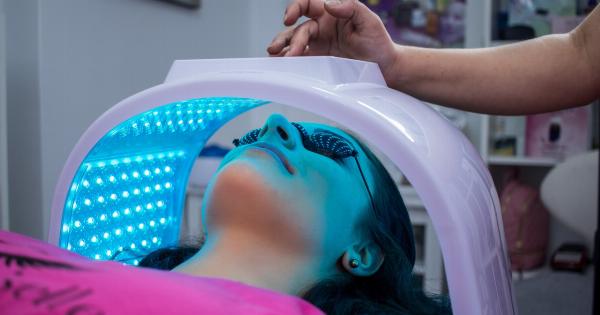The transition into menopause is a natural process that every woman experiences as she enters a new phase of her life. Along with many other changes, menopause often brings noticeable changes to the skin.
These changes can include dryness, dullness, loss of elasticity, increased sensitivity, and the appearance of fine lines and wrinkles. Although these changes are inevitable, there are ways to combat and minimize the impact they have on your skin.
1. Keep Your Skin Hydrated
One of the most common menopausal skin concerns is dryness. Hormonal changes during menopause can lead to decreased production of natural oils, leaving the skin feeling dry and tight.
To combat this, it’s important to keep your skin hydrated by using moisturizers specifically formulated for mature skin. Look for ingredients like hyaluronic acid and ceramides that help retain moisture and improve skin elasticity.
2. Protect Your Skin from the Sun
Sun protection is crucial for maintaining healthy skin at any age, but it becomes even more important during menopause.
The decline in estrogen levels can make the skin more vulnerable to sun damage, leading to premature aging and an increased risk of skin cancer. Make sure to apply a broad-spectrum sunscreen with at least SPF 30, wear protective clothing, and seek shade during peak sun hours.
3. Adopt a Gentle Skincare Routine
Menopausal skin tends to become more sensitive, so it’s important to use gentle skincare products that won’t cause irritation.
Avoid harsh cleansers and exfoliants that can strip the skin’s natural oils and disrupt its barrier function. Instead, opt for mild, fragrance-free cleansers and gentle exfoliators to remove dead skin cells and promote cell turnover.
4. Consider Hormone Replacement Therapy
Hormone replacement therapy (HRT) is a medical treatment that can help alleviate some of the symptoms of menopause, including skin changes. Talk to your healthcare provider to see if HRT is a suitable option for you.
HRT can help balance hormone levels and improve skin elasticity, density, and hydration.
5. Incorporate Antioxidants into Your Skincare
Antioxidants are powerful allies when it comes to fighting the signs of aging. They work by neutralizing free radicals, which are unstable molecules that can damage the skin’s collagen and elastin fibers, leading to sagging and wrinkles.
Look for skincare products containing antioxidants such as vitamins C and E, green tea extract, and resveratrol to help protect your skin against oxidative stress.
6. Prioritize a Healthy Diet
Eating a balanced diet rich in antioxidants, vitamins, and minerals is essential for maintaining healthy skin during menopause. Include plenty of fruits and vegetables, whole grains, lean proteins, and healthy fats in your meals.
Foods high in omega-3 fatty acids, such as fatty fish and flaxseeds, can also help reduce inflammation and promote skin health.
7. Stay Hydrated from the Inside Out
In addition to external hydration, make sure to stay hydrated from within by drinking plenty of water throughout the day. Water helps flush out toxins and keeps your skin plump and moisturized.
Aim for at least eight glasses of water per day, and limit your intake of dehydrating beverages like alcohol and caffeine.
8. Get Enough Sleep
Quality sleep is essential for overall health, but it also plays a crucial role in maintaining youthful-looking skin. During sleep, your body repairs and regenerates skin cells, and lack of sleep can lead to increased signs of aging.
Aim for seven to eight hours of uninterrupted sleep every night to give your skin the rest it needs.
9. Manage Stress Levels
Chronic stress can negatively affect your skin by increasing inflammation, triggering breakouts, and accelerating the aging process. Find healthy ways to manage stress, such as practicing yoga, meditation, or engaging in hobbies you enjoy.
Taking care of your mental well-being can have a positive impact on your skin’s health.
10. Seek Professional Help
If you’re experiencing persistent or severe menopausal skin changes, it may be beneficial to consult with a dermatologist or skincare professional.
They can assess your skin’s condition, provide targeted treatments, and recommend specialized skincare products or procedures that can effectively address your specific concerns.






























